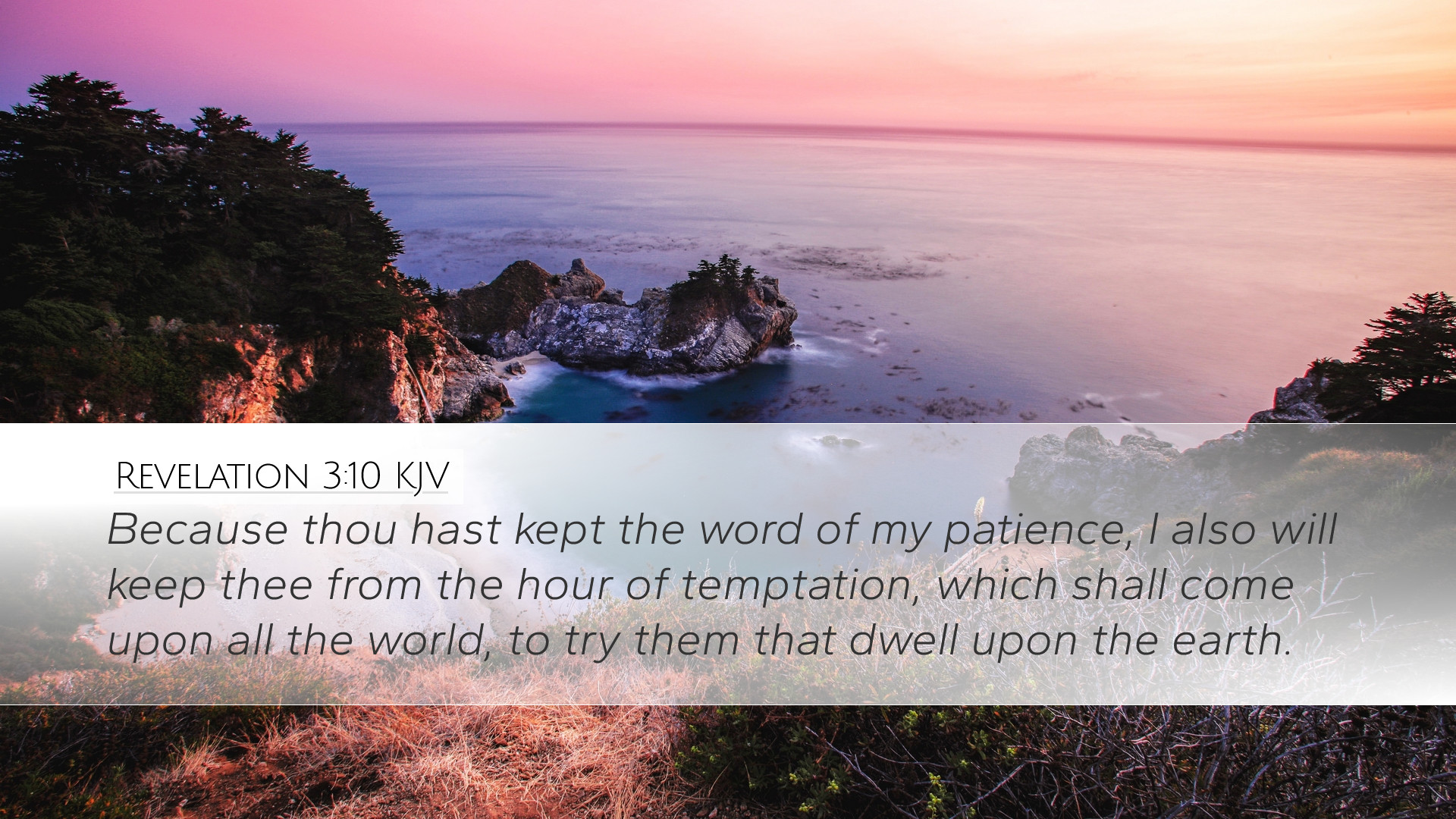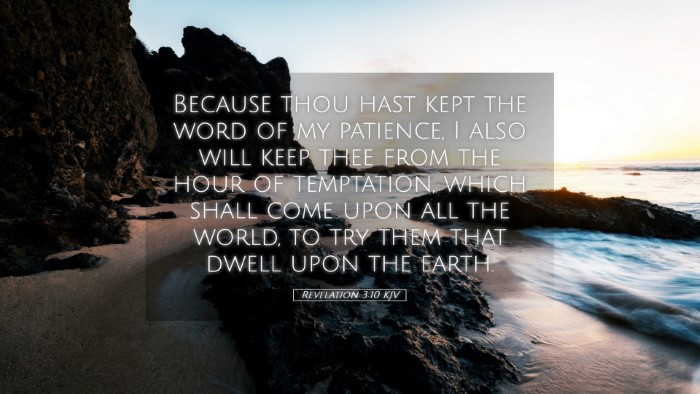Commentary on Revelation 3:10
Revelation 3:10 states, “Because you have kept My command to persevere, I also will keep you from the hour of trial which shall come upon the whole world, to test those who dwell on the earth.” This verse, situated within the context of the Letter to the Church in Philadelphia, presents profound theological implications and pastoral insights. Below, we summarize insights from notable public domain commentaries to provide an enriched perspective for pastors, students, theologians, and Bible scholars.
Contextual Background
Revelation 3:10 is part of a series of letters addressed to the seven churches in Asia Minor. This particular letter, often referred to as the letter to the Philadelphia church, commends the believers’ faithfulness and perseverance amidst persecution. The city of Philadelphia was known for its commitment to spreading Hellenistic culture and was situated in a region prone to seismic activity. The setting highlights the church's trials and the significance of divine promise.
Theological Insights
-
Promise of Preservation:
Matthew Henry emphasizes that the promise includes divine preservation from the forthcoming trial, signifying God’s protection over His faithful remnant. This reflects God’s covenantal faithfulness, assuring believers that they will be shielded in times of great testing.
-
The Hour of Trial:
Albert Barnes elaborates that the "hour of trial" refers to a period of tribulation that will test the entire world. This trial symbolizes the final judgment and the testing of the faith across nations, indicating that it will be a unique and severe period of hardship. The assurance that the faithful will be kept from this hour provides comfort and hope.
-
Perseverance of the Saints:
Adam Clarke notes that the phrase “kept My command to persevere” signifies the importance of steadfastness in faith. It highlights that perseverance is not merely passive endurance but an active commitment to following Christ’s commands despite external pressures and challenges.
-
Testing Purpose:
The mention of testing those “who dwell on the earth” is significant as it underscores the global scope of the tribulation. It serves to remind believers of the temporary nature of this world contrasted with the eternal security they possess in Christ. The purpose of testing is ultimately redemptive, revealing the true character of faith and commitment.
Christological Perspective
The promise of deliverance is framed in the context of Christ’s authority. The statement “I also will keep you” emphasizes His sovereignty and the assurance that He provides to His followers. Matthew Henry points out that this reflects the nature of Christ as both Savior and Judge, who possesses the ability to safeguard and ultimately reward those who remain faithful.
Practical Applications
For pastors and theologians, the implications of Revelation 3:10 must resonate deeply in preaching and teaching about faithfulness and perseverance. Here are some practical applications:
-
Encouragement to Persevere:
This verse serves as a powerful encouragement in pastoral counseling, reminding saints to remain steadfast amid trials, knowing that their perseverance has divine recognition and reward.
-
Teach on God’s Faithfulness:
Understanding that divine protection is rooted in faithfulness can fortify the church when facing challenges. Pastors can build sermons around God’s promises as seen in this verse, fostering a culture of trust and reliance on Him.
-
Understanding Trials:
It is crucial to equip the congregation to understand testing as a part of God’s plan. In doing so, the community is nurtured to approach trials not with fear, but with anticipation for what God will accomplish through them.
Conclusion
Revelation 3:10 encapsulates rich theological themes of perseverance, divine protection, and eschatological hope. As believers reflect on this verse, they are encouraged to trust in God’s promises that transcend earthly trials. For pastors and scholars, embracing these insights allows for deeper engagement with congregational life, cultivating a resilient faith that embraces the challenges of the present age while looking forward to the fulfillment of God’s promises.


